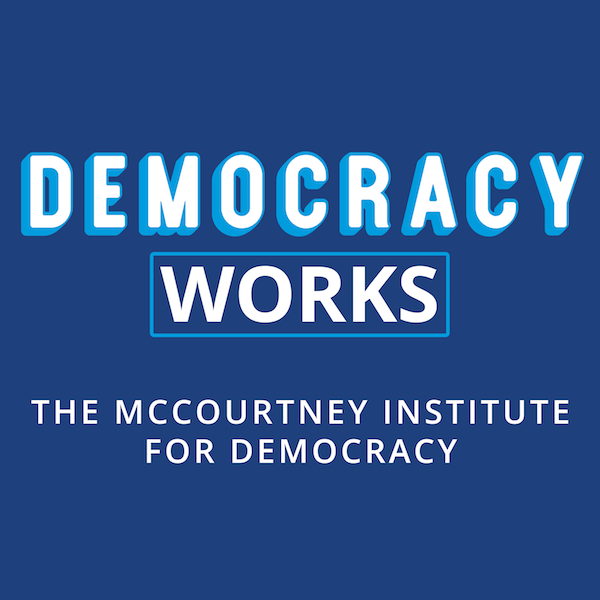We are partisans for democracy
What does it mean to be a partisan for democracy? We don’t take sides on the political spectrum, but we do defend the rights everyone has as a democratic citizen — from voting to protesting to consuming information from a free press that serves as a check on political leaders.
The McCourtney Institute for Democracy draws from the humanities and social sciences to examine democracy from multiple angles. This cross-discipline collaboration is evident in our research, education, and outreach efforts.
We educate the next generation of democratic citizens through our Nevins Fellows program, monitor attitudes toward democracy with the Mood of the Nation poll, and host speakers and events that bring people from diverse backgrounds and points of view together to discuss the role of democracy in our society.
We make all of this happen in partnership with our centers of excellence, the Center for American Political Responsiveness and the Center for Democratic Deliberation, and many other organizations throughout the College of the Liberal Arts and the broader Penn State community.
Stay Informed:
Democracy Works Podcast

In the aftermath of the U.S. intervention in Venezuela, we explore how rising political divides are leading to bigger swings in America’s foreign policy — and what that means for our future in the liberal international order.
In her book Polarization and International Politics: How Extreme Partisanship Threatens Global Security, Rachel Myrick argues that polarization reshapes the nature of constraints on democratic leaders, which in turn erodes the advantages democracies have in foreign affairs. We discuss how the pendulum swing from one administration to another leads to instability in foreign affairs. As a result, Myrick says the United States loses both reliability as an ally and credibility as an adversary. Myrick also questions the longstanding thinking that having a common enemy to focus on is enough to overcome polarization, as it was during the Cold War.
Myrick is the Douglas & Ellen Lowey Associate Professor of Political Science at Duke University. Her research explores how partisan polarization affects foreign policymaking in democracies, with an emphasis on U.S. national security policy.
Hosted by Simplecast, an AdsWizz company. See pcm.adswizz.com for information about our collection and use of personal data for advertising.